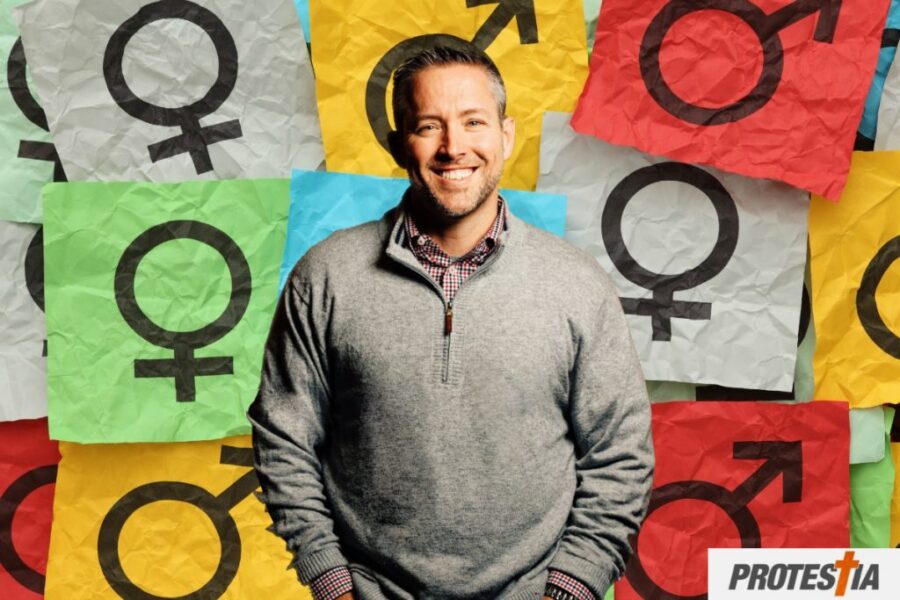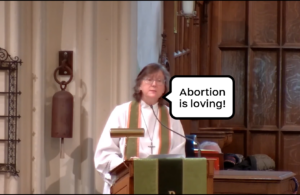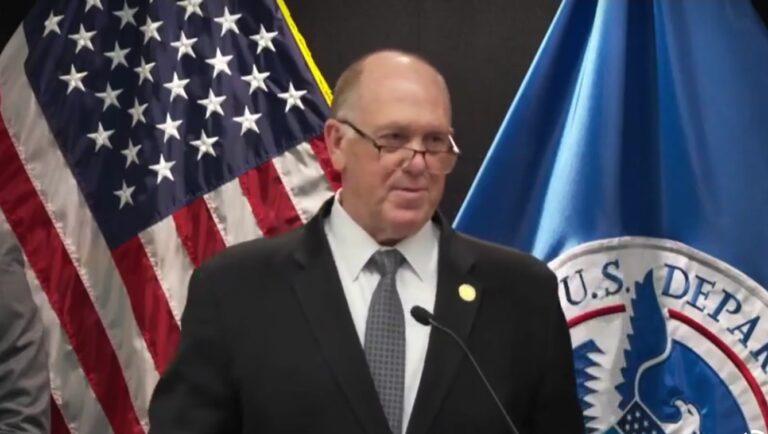Christians disagree—hopefully charitably—about pronoun usage. Some think that as a personal courtesy, you should refer to a transgender person by their preferred pronoun. Others think that it is wrong to inject further confusion into a person’s situation by referring to them with a pronoun that is not aligned with their biological sex. In other words, there is a spectrum of generosity of spirit vs. telling truth. I tend toward generosity of spirit.” JD Greear. 2019.
In a recent podcast, former SBC president J.D Greear has rejiggered some controversial public statements he’s made in the past, walking back earlier assertions affirming that Christian should use personal pronouns and mostly taking a much bolder stance.
Previously, Greear argue for a ‘generosity of spirit‘ when it came to the topic, quoting favorably Preston Sprinkles acceptance and urging of ‘pronoun hospitality’ in light of how the bible appears to use accommodating language. Now, things are much different.
I want to clarify some things that I said, some things that have been passed around since that podcast, partly because the conversation in our culture, has shifted, it’s evolved. I mean this is a rapidly changing thing….So my own thinking on this has crystallized and I would say, in some ways matured or, you know, evolved...
There are several dynamics at play. I think when we think about a question like this, ‘should we use somebody else’s pronouns when they they ask’ one of those is truth. Our job as witnesses to stand uncompromisingly in the truth, to rebuke our society, to stand against untruth and darkness. The other thing are the relational aspects of just knowing somebody, walking with them, maintaining a relationship with them. And we’re not just called to defend truth, we’re called to win people.
So you know, if somebody has transitioned, if Tommy, you know, now wants to go by Tara and wants to be called she/ her instead of he/him, should you consent to that go along with it? Let me actually use a phrase I first heard from Andrew Walker, because I really liked this framing. The answer to that question begins and ends with ‘no’. And the reason I say that is because I think as believers, we have to be crystal clear on the truth. So the answer begins and ends with ‘no’, that we should not use someone’s preferred pronouns when we know that Tommy is a male, because that’s how God created him.
He continues:
“I mean 1 Corinthians 6:9 makes that clear that people who embrace gender confusion and celebrate it and go along with that, I mean it says they will not inherit the kingdom of God. And I don’t know how that could get any clearer. Romans 1, Paul tells us that pursuing this kind of lifestyle not only brings the wrath of God, it’s evidence of the wrath of God. God gave people up over to this kind of stuff to not recognize and submit to the gender that God wrote into your cell structure at birth. Paul says in Romans 1 that is a rebellion against the creator of the highest order. I know there’s a lot of brokenness. I know there’s a lot of you know, dysphoria. I understand that for some people, there’s, there’s a lot of complexity and mess. But I think we have to be honest about what the Bible says about it. And we got to be clear.
In the previous ask me anything, I was hypothesizing about a situation where I’m sitting in my office …and I’m with a dad and his transgender child as they come to me for clarity on what the Bible teaches. So I make clear to them what the Bible teaches. But if in the course of conversation, in order to keep that conversation moving along, I use the child’s self referential pronouns, I talk with and about them, just to keep them in the conversation, I don’t think if someone chose to do that, that that would represent a capitulation or a compromise of truth, if on the front end and back end that’d been made clear.
But that should never be done in a way that implies acceptance or affirmation, not even for a second. The easiest thing honestly in this, because, you know, I don’t want to even normalize the way they’re thinking of themselves, the easiest way is just to use their name, even if it’s awkward.
Greear explains that every time it comes time to use pronoun, he’d just avoid it and use ‘her’ name ‘Tara’ instead, noting that “that’s a little wooden and awkward…but that awkwardness is really on them because they created the situation.”
I can show respect for them, while not affirming something that I know to be false. Again…what we’re trying to do is, we’re trying to balance two things. One, clearly testify to the truth. And then number two, doing our best to keep the person in relationship in order to keep things moving, to be able to really engage this issue at the heart level, where it has to be engaged .
…So let me add a third to that….the third one is to fight the battle at the right location. This being clear and truthful about gender, that’s a battle we have to fight, no matter how unpopular it is in our day. But that doesn’t mean that I fire shots or draw battle lines in every other sentence. You know, when I’m trying to get the conversation focused on what we need to get focused on.“
Lastly, Greear is asked what should someone do if put in a situation where he is asked to present or give his pronouns, such as for work:
“For me to clarify what my pronouns are, I’m normalizing the question. And we believe that that’s not even a valid question. And so when I point out my pronouns, in one way is I’m making a true statement. But another way, I’m normalizing a question that should not be normalized in our culture. Because we believe that the pronouns you have are what God wrote into your cell structure when you were born. So for that reason, I would resist., I would resist giving my pronouns wherever I could, because I don’t want to normalize the gender confusion, or affirm that this is a legitimate question.”
Credit where credit is due. It’s good that Greear has changed his mind on this, and we wanted to offer a full transcript for all the times we beat him up for his previous perspectives. While we’re on the topic, here’s a couple more things Greear can change and “crystalize’ his thinking on.
J.D. Greear Uses Epic Bible Twist to Explain why Parable is Actually about ‘Social Justice’ and ‘Older Brother Privilege’
J.D. Greear Statement Response Lauds Critical Race Theory, Affirmative Action in SBC
J.D. Greear Advocates for ‘Gender-Justice’ in New Woke Screed
With Latest Comments, SBC President J.D. Greear Is Officially a Race-Baiter
As Rick Warren Announces Successor, New Pastrix, JD Greear Praises Him for ‘Faithful’ Example
h/t The Dissenter























3 responses to “J.D. Greear (Mostly) Renounces His View of Using Personal Pronouns”
[…] To read more, click here: https://protestia.com/2022/09/08/j-d-greear-mostly-renounces-his-view-of-personal-pronouns/ […]
[…] typical evangelical “blind guide vibes,” which is the crux of the problem. Protestia covered Greear’s backpedaling on this issue at the time, but suffice it to say, he was for bearing false witness via pronouns before he was against it. […]
[…] advice rings hollow. As Protestia has documented repeatedly – whether in his embrace of “pronoun hospitality,” his equivocations on homosexuality, or his flirtation with Big Eva’s progressive drift […]